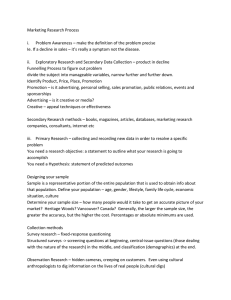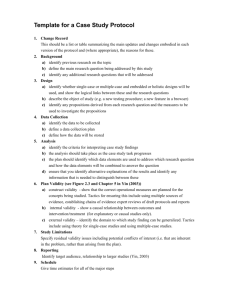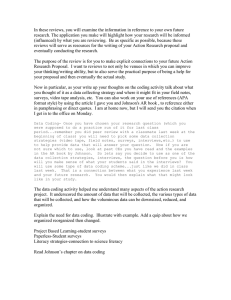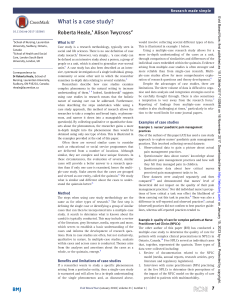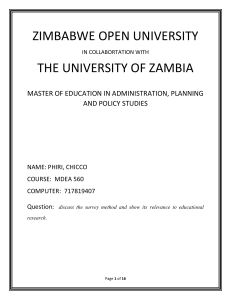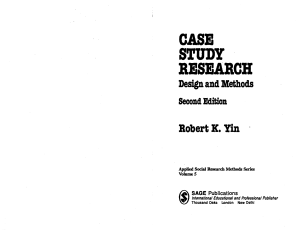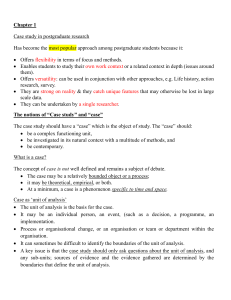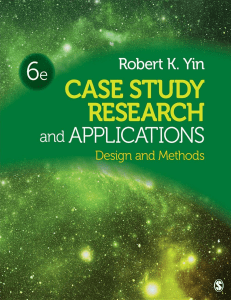Case Study Research: Methods, Advantages & Disadvantages
advertisement
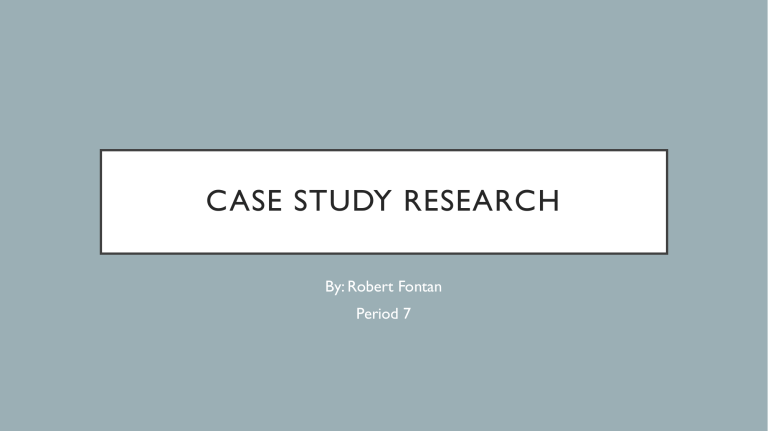
CASE STUDY RESEARCH By: Robert Fontan Period 7 PURPOSE/FOCUS • To explore why and how a situation happens in a certain case (individual ,group, unit, etc.) • An intense study about a case aimed to generalize over several units, to understand why a situation occurs inside a case. METHODS OF DATA COLLECTION • Before collecting any types of data we must first identify exactly what our case is • To do so we must conduct background research to understand more about our case, which would mean literature reviews, media reviews, and reports. • Once we know about our “case”, methods of data collection would include surveys ,interviews, observation, and collection of physical objects PRIMARY DATA • Interviews • Surveys • Documentation Review • Observation • Collection of Physical Objects SECONDARY DATA • Literature review, • Media review • Research Papers • General information about a case can be used. ADVANTAGES • A single-case study allows learning about a specific phenomenon occurring in a single unit. • A multiple-case study is more common and is used to compare different units inside a case. • Case studies allow for a deeper understanding of a complex issue that occurs in people. • Due to the vague nature of case studies a researcher is not confined to a single method DISADVANTAGES • A single-case study is often too small and unreliable to provide any meaningful results about a situation. • This prompts researchers to pursue a bigger, more complex study in the form of a multiple-case study. • Which involves deep understanding of all the different units in the study, this then causes much more data to be used and analyzed in order to get accurate results. HOW IS DATA ANALYZED • Organizing Data into categories • Creating displays of Information (bar graphs, pie charts, etc.) • Tabulating frequency of events After analysis, researchers in a case study will purposely try to look for an alternative to what is initially found in the data, which often leads to short interviews to confirm a fact found in the data.
